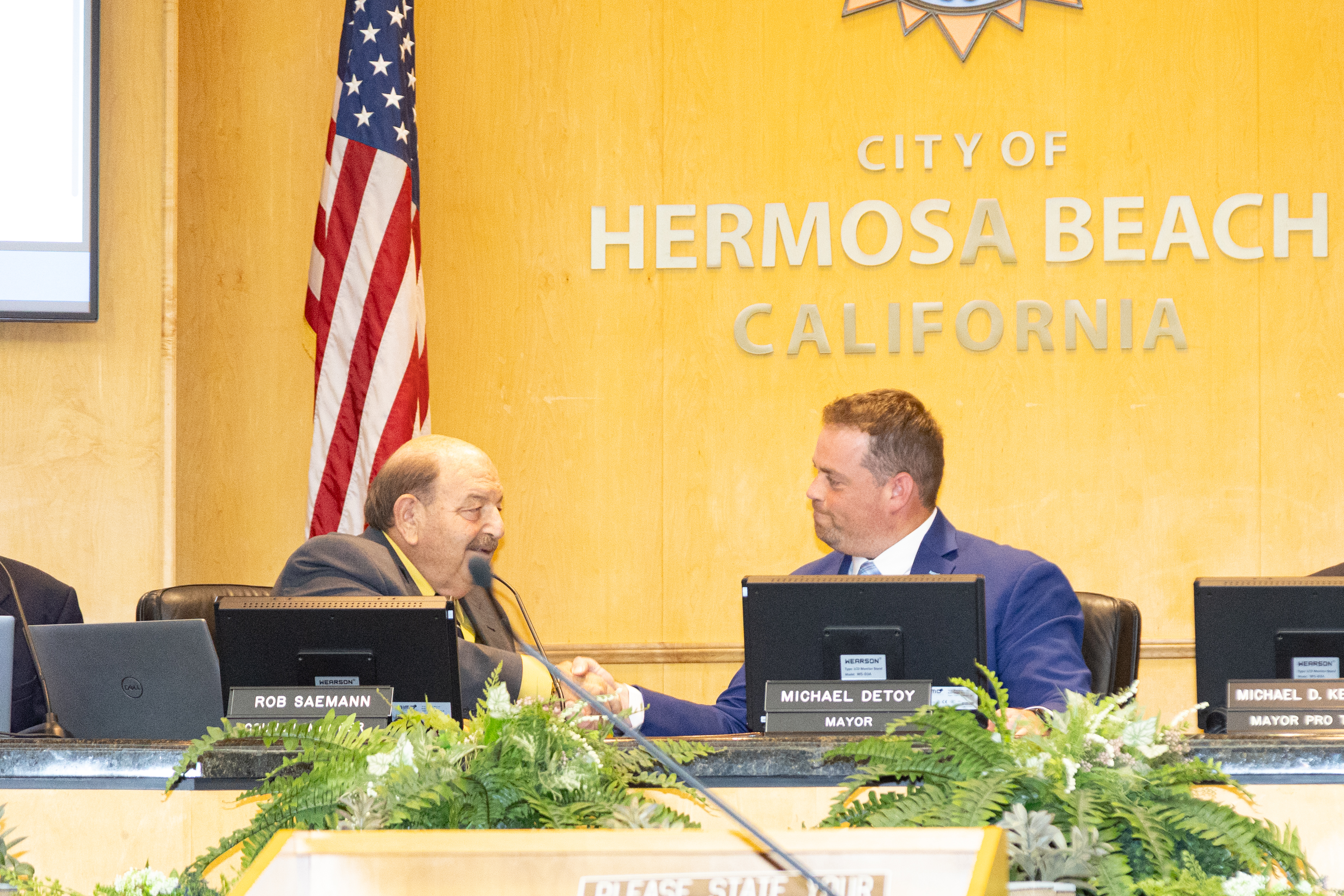by Kevin Cody
Hermosa Beach will continue to enforce its ban on Short Term Vacation Rentals (STVRs) in the residential coastal zone despite agreeing to refund $8,000 in fines to two property owners cited for violating the ban, city officials said this week.
The refunds followed appeals of the citations upheld by city administrative hearing officer Steve Napolitano, who ruled, “The City’s prohibition of STVRs in the Coastal Zone is invalid….”
Hermosa Beach Mayor Dean Francois said the rulings would not deter Hermosa from enforcing its ban.
“He’s trying to act like a judge, which he can’t do,” Francois said of Napolitano, an attorney and Manhattan Beach Councilmember.
City Attorney Patrick Donegan did not respond to a request for an interview. Instead, Hermosa public information officer Ryan Walker responded to the request with an emailed statement he said “can be attributed to City Attorney Patrick Donegan.”
The email read, in part, “Hearing officers cannot invalidate or overturn duly adopted ordinances by the City. As such, the City will continue to enforce the short term rental ban as currently constituted.”
The email further stated, the city’s STVR ban was twice upheld by the courts in 2016.
In Janine Johnson V. City of Hermosa Beach, the plaintiff argued the City needed Coastal Commission Approval to ban STVRs in the coastal zone (west of the Greenbelt). The judge disagreed with the plaintiff, stating “The ordinance was enacted pursuant to the city’s police power and did not fall under the auspices of the Coastal Commission.”
In a similar 2016 case, the court denied a request for a preliminary injunction to stop enforcement of the STVR ban.
But four years later, Judge James Chalfant, who denied the injunction, issued an opposite ruling in a STVR suit against Manhattan Beach, filed by resident Darby Keen.
The Keen suit resulted from a Short Term Vacation Rental ban the Manhattan Beach City Council enacted in 2016, when Hermosa enacted its ban. In 2019, Manhattan hired an outside firm to assist in enforcing the ban, and increased fines for illegal short term vacation rentals to $1,000 per day.
Among the Manhattan councilmembers who voted for the ban was Napolitano, the hearing officer who recently ruled Hermosa’s short term vacation rental ban is invalid.
Judge Chalfant found in the Keen case, which Napolitano cited in the two Hermosa citation cases, that Manhattan’s STVR ban was in violation of the California Coastal Act and could not be enforced. After losing its appeal to the California Supreme Court, Manhattan revoked its ban in the coastal zone. Manhattan Beach is now earning approximately $1 million in Transient Occupancy Taxes (bed taxes) from STVRs, according to a city report.
Like Manhattan in 2019, Hermosa has hired an outside firm, Host Compliance, to assist in enforcement. In April, Hermosa raised fines for violating the STVR ban to $5,000 for the first violation, $10,000 for the second and $20,000 for the third.
Glen West is one of the two Hermosa Beach residents who recently won their appeals of STVR fines.
He said he began advertising one unit in a duplex he owns in North Hermosa last December after reading the Manhattan Beach STVR ban had been ruled illegal.
Following his July 1 appeal of his $2,500 citation, West said, “I didn’t want to waste money on an attorney. I represented myself, and hoped the hearing office would listen to reason.”
“Manhattan’s ban on short term vacation rentals in the coastal zone was ruled illegal. So was Santa Barbara’s and other cities,” West said he argued at his hearing.
Napolitano declined to comment on why he found Hermosa’s STVR ban “invalid” after having supported Manhattan’s ban as a councilmember in 2020.
But in his Hermosa rulings, Napolitano cited the Keen v. Manhattan case, and two other cases in which the courts found cities must obtain a Coastal Commission permit to impose a STVR ban in the coastal zone.
City Attorney Donegan disagrees with Napolitano on the requirement of a Coastal permit, according to the email attributed to him by Public Information Officer Walker.
“The City is under no obligation to apply for a coastal development permit for generally applicable zoning ordinances,” the Walker email states.
Mayor Francois, when asked if continued enforcement means citations will continue to be issued, answered, “I can’t respond to a hypothetical.” ER








